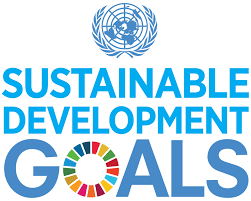Muhammad Haris
In an era marked by global challenges, the United Nations’ Sustainable Development Goals (SDGs) stand as a beacon of hope for a better, more equitable world. However, the scale and complexity of these goals necessitate collaborative efforts on an unprecedented scale.
The power of partnerships has emerged as a driving force behind the progress towards achieving the SDGs worldwide. The 2030 Agenda for Sustainable Development, adopted by all United Nations Member States in 2015, comprises 17 interconnected goals addressing issues ranging from poverty and hunger to climate change and gender inequality. Recognizing the intricate nature of these challenges, governments, businesses, civil society, and academia have increasingly embraced the idea that no single entity can address them in isolation.
Partnerships between governments and non-governmental organizations (NGOs) have proven to be instrumental in extending the reach and impact of various initiatives. By combining resources, expertise, and networks, these collaborations can amplify the effectiveness of programs aimed at eradicating poverty, ensuring quality education, and promoting good health and well-being. The private sector also plays a pivotal role in advancing the SDGs.
Companies have the ability to leverage their innovation, technology, and financial resources to drive sustainable development. Corporate social responsibility initiatives, sustainable business practices, and strategic partnerships with NGOs and governments contribute significantly to addressing environmental and social challenges. Academic institutions have become crucial allies in the pursuit of the SDGs. Research and knowledge generation are essential components of sustainable development.
Collaborations between universities, research institutions, and policymakers facilitate the exchange of ideas and the development of evidence-based solutions to complex problems. One exemplary model of international collaboration is the Global Partnership for Sustainable Development Data.
This initiative brings together governments, businesses, and civil society organizations to enhance the quality and availability of data crucial for monitoring progress towards the SDGs. By fostering cooperation on data collection and analysis, this partnership contributes to informed decision-making and effective policy implementation.
The COVID-19 pandemic has underscored the importance of global cooperation. The Access to COVID-19 Tools (ACT) Accelerator, a collaborative effort involving the World Health Organization, governments, philanthropies, and the private sector, exemplifies how partnerships can expedite the development and equitable distribution of vaccines, treatments, and diagnostics. As the world races against time to meet the ambitious targets set by the SDGs, the power of partnerships remains indispensable.
Governments, businesses, and civil society must continue to forge alliances, break down silos, and work collectively towards a sustainable and inclusive future. In conclusion, the road to achieving the SDGs is paved with collaborative endeavors. By recognizing and harnessing the power of partnerships, we can overcome the intricate challenges facing our world and build a future where no one is left behind. Together, we can transform the vision of the 2030 Agenda into a reality, leaving a lasting legacy for generations to come.







